Outstanding Editorial Board Members
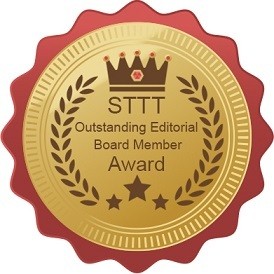 Each year, our editorial office will select ten Outstanding Editorial Board Members to award their contribution to our journal in the year.
Each year, our editorial office will select ten Outstanding Editorial Board Members to award their contribution to our journal in the year.
Our Outstanding Editorial Board Members are those who have been recognized as experts in their field and made a significant and positive contribution to the peer review process. We are extremely grateful to everyone that has contributed to the high quality of the papers published in Signal Transduction and Targeted Therapy.
To show our thanks, we present here the profiles those awarded our 'outstanding editorial board member' accolade.
Year 2022
Xue-tao Cao
Research Areas: innate immunity and inflammation, tumor immunology and immunotherapy.
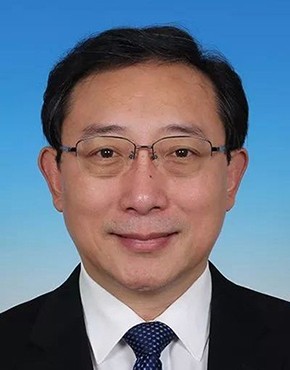 Dr. Xue-tao Cao is the Professor and Director of Center for Immunotherapy, Chinese Academy of Medical Sciences, Beijing, China, and Director of Institute of Immunology in Nankai University. He received M.D. and Ph.D. degrees from Second Military Medical University, and became Professor in Immunology in 1993. He was past President of Chinese Academy of Medical Sciences and past President of Nankai University. Dr. Cao was elected to the Chinese Academy of Engineering in 2005, German Academy of Sciences, US National Academy of Medicine, and American Academy of Arts and Sciences. Dr. Cao's major research interests are innate immunity and inflammation, tumor immunology and immunotherapy. His group has made contributions to the understanding of innate signaling in immunity and inflammation, identification of regulatory cell subsets and novel molecules in dendritic cell (DC)-initiated immune response, and translational research of cancer immunotherapy.
Dr. Xue-tao Cao is the Professor and Director of Center for Immunotherapy, Chinese Academy of Medical Sciences, Beijing, China, and Director of Institute of Immunology in Nankai University. He received M.D. and Ph.D. degrees from Second Military Medical University, and became Professor in Immunology in 1993. He was past President of Chinese Academy of Medical Sciences and past President of Nankai University. Dr. Cao was elected to the Chinese Academy of Engineering in 2005, German Academy of Sciences, US National Academy of Medicine, and American Academy of Arts and Sciences. Dr. Cao's major research interests are innate immunity and inflammation, tumor immunology and immunotherapy. His group has made contributions to the understanding of innate signaling in immunity and inflammation, identification of regulatory cell subsets and novel molecules in dendritic cell (DC)-initiated immune response, and translational research of cancer immunotherapy.
Chong Chen
Research Areas: Precision Tumor Modeling, Tumor initiation and progression, Acquired chemo- and immunotherapy resistance
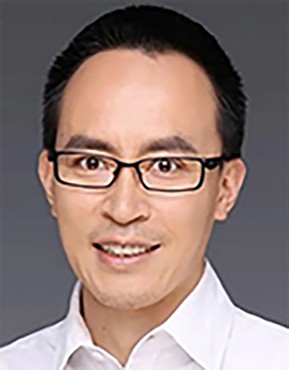 Dr. Chong Chen is a Professor and PhD supervisor at the State Key Laboratory of Biotherapeutics, West China Hospital, Sichuan University. He has been working under the supervision of Prof. Yang Liu/Zheng Pan (Ph.D.), a tumor immunologist, and Prof. Scott Lowe (postdoctoral fellow), an oncologist and member of the American Academy of Sciences. 2014, he established a tumor research laboratory with Prof. Liu Yu at the State Key Laboratory of Biotherapeutics, West China Hospital, Sichuan University. His main research interests include: mechanisms of lung, esophageal, gastric and bladder cancer development; organoid and precision tumor models; tumor therapeutic targets and new drug development; tumor metastasis and drug resistance mechanisms, etc. He has published more than 40 research papers in international journals such as Nature, Nature Cancer, Cancer Cell and Cancer Discovery as (co-)first or (co-)corresponding author, with more than 4,000 citations. He is the chair of the National Natural Science Foundation of China (NSFC) and the National Key Research and Development Program.
Dr. Chong Chen is a Professor and PhD supervisor at the State Key Laboratory of Biotherapeutics, West China Hospital, Sichuan University. He has been working under the supervision of Prof. Yang Liu/Zheng Pan (Ph.D.), a tumor immunologist, and Prof. Scott Lowe (postdoctoral fellow), an oncologist and member of the American Academy of Sciences. 2014, he established a tumor research laboratory with Prof. Liu Yu at the State Key Laboratory of Biotherapeutics, West China Hospital, Sichuan University. His main research interests include: mechanisms of lung, esophageal, gastric and bladder cancer development; organoid and precision tumor models; tumor therapeutic targets and new drug development; tumor metastasis and drug resistance mechanisms, etc. He has published more than 40 research papers in international journals such as Nature, Nature Cancer, Cancer Cell and Cancer Discovery as (co-)first or (co-)corresponding author, with more than 4,000 citations. He is the chair of the National Natural Science Foundation of China (NSFC) and the National Key Research and Development Program.
Guang-ping Gao
Research Areas: viral vector gene therapy of rare genetic diseases
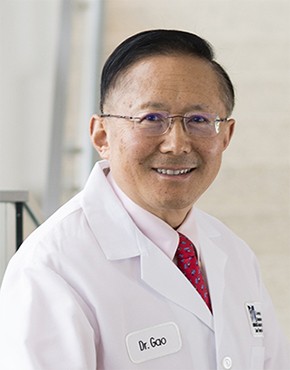 Dr. Guang-ping Gao is the Co-Director, Li Weibo Institute for Rare Diseases Research, Director, Horae Gene Therapy Center and Viral Vector Core, Professor of Microbiology and Physiological Systems, Penelope Booth Rockwell Professor in Biomedical Research, UMass Chan Medical School; Elected fellows, both the US National Academy of Inventors (NAI) and American Academy of Microbiology; Past president, American Society of Gene and Cell Therapy. Dr. Gao is an internationally recognized gene therapy researcher who has played a key role in the discovery and characterization of new family of adeno-associated virus (AAV) serotypes, which was instrumental in reviving the gene therapy field. He has primarily focused on viral vector gene therapy of rare genetic diseases, including novel viral vector discovery for in vivo gene delivery, vector biology, viral vector manufacturing and preclinical and clinical gene therapeutics and novel platform technology development. Dr. Gao has published about 350 research papers, 6 book chapters, and 5 edited books. He holds 233 patents with 480 more pending. Dr. Gao has been ranked as the World Top 20 Translational Researchers for several years in a row by Nature Biotechnology.
Dr. Guang-ping Gao is the Co-Director, Li Weibo Institute for Rare Diseases Research, Director, Horae Gene Therapy Center and Viral Vector Core, Professor of Microbiology and Physiological Systems, Penelope Booth Rockwell Professor in Biomedical Research, UMass Chan Medical School; Elected fellows, both the US National Academy of Inventors (NAI) and American Academy of Microbiology; Past president, American Society of Gene and Cell Therapy. Dr. Gao is an internationally recognized gene therapy researcher who has played a key role in the discovery and characterization of new family of adeno-associated virus (AAV) serotypes, which was instrumental in reviving the gene therapy field. He has primarily focused on viral vector gene therapy of rare genetic diseases, including novel viral vector discovery for in vivo gene delivery, vector biology, viral vector manufacturing and preclinical and clinical gene therapeutics and novel platform technology development. Dr. Gao has published about 350 research papers, 6 book chapters, and 5 edited books. He holds 233 patents with 480 more pending. Dr. Gao has been ranked as the World Top 20 Translational Researchers for several years in a row by Nature Biotechnology.
http://profiles.umassmed.edu/Profiles/display/129927
Ming-liang He
Research Areas: molecular mechanisms of human diseases caused by virus infections, target-specific antiviral/antitumor drug development.
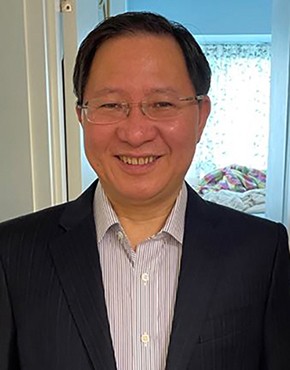 Dr. He obtained his education in China (BSc, Sichuan University; PhD, Shanghai Institute of Biochemistry, CAS) and postdoctoral training in US (Roswell Park Cancer Institute, NY; Washington University, MO). He started independent research in HKU in 2000, appointed as associate professor in CUHK in 2005 and promoted to professor in the City University of Hong Kong. His research interests include molecular mechanisms of human diseases caused by virus infections (including human cancers and infectious diseases) and target-specific antiviral/antitumor drug development. Dr. He has published over 150 research articles in high profile research journals (such as Nat Chem, JAMA, PNAS, STTT, Cancer Res., J Virol., etc.), granted several US and Chinese patents. He has served as an editorial board member or guest editor of well-recognized journals and co-organized quite a few international conferences.
Dr. He obtained his education in China (BSc, Sichuan University; PhD, Shanghai Institute of Biochemistry, CAS) and postdoctoral training in US (Roswell Park Cancer Institute, NY; Washington University, MO). He started independent research in HKU in 2000, appointed as associate professor in CUHK in 2005 and promoted to professor in the City University of Hong Kong. His research interests include molecular mechanisms of human diseases caused by virus infections (including human cancers and infectious diseases) and target-specific antiviral/antitumor drug development. Dr. He has published over 150 research articles in high profile research journals (such as Nat Chem, JAMA, PNAS, STTT, Cancer Res., J Virol., etc.), granted several US and Chinese patents. He has served as an editorial board member or guest editor of well-recognized journals and co-organized quite a few international conferences.
https://www.cityu.edu.hk/bms/profile/minglianghe.htm
Jian-sheng Kang
Research Areas: energy metabolism, mitochondria, neurodegenerative diseases
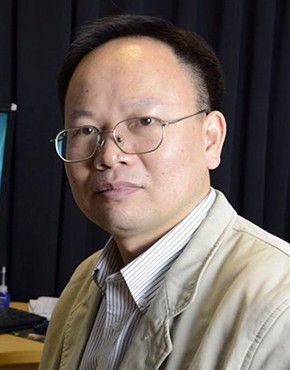 Professor Jian-Sheng Kang, gained Ph.D. at 2001 from Department of Biochemistry and Molecular Biology Institute of Biochemistry and Cell Biology, Chinese Academy of Sciences (CAS); accomplished Post-doc in Picower Center for Learning and Memory, Massachusetts Institute of Technology (MIT), and National Neurological Disorder and Stroke (NINDS/NIH). Dr. Kang was employed in Institute for Nutritional Sciences, Shanghai Institutes for Biological Sciences, CAS as the Principal Investigator from 2009 to 2016 and, won the honor of CAS (Hundred Talents Program). Dr. Kang joined the first affiliated hospital of ZZU as distinguished special term professor, studies in the field of energy metabolism and related diseases, such as neurodegenerative diseases.
Professor Jian-Sheng Kang, gained Ph.D. at 2001 from Department of Biochemistry and Molecular Biology Institute of Biochemistry and Cell Biology, Chinese Academy of Sciences (CAS); accomplished Post-doc in Picower Center for Learning and Memory, Massachusetts Institute of Technology (MIT), and National Neurological Disorder and Stroke (NINDS/NIH). Dr. Kang was employed in Institute for Nutritional Sciences, Shanghai Institutes for Biological Sciences, CAS as the Principal Investigator from 2009 to 2016 and, won the honor of CAS (Hundred Talents Program). Dr. Kang joined the first affiliated hospital of ZZU as distinguished special term professor, studies in the field of energy metabolism and related diseases, such as neurodegenerative diseases.
https://orcid.org/0000-0002-2603-9718
Peng Lei
Research Areas: Molecular mechanism and drug targets for Alzheimer, Parkinson and Stroke; Iron-dependent programmed cell death pathway
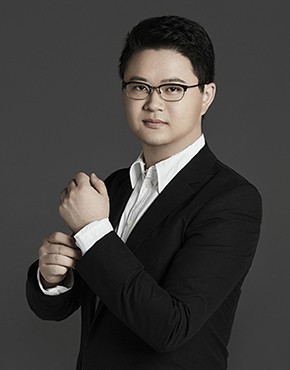 Dr. Peng Lei, recipient of the National Outstanding Young Scientists Foundation (2017). He is also the Deputy Director of Cognitive Disorders Branch of China Association for the Promotion of Healthcare International Exchange, the Standing Committee Member of the 13th Chengdu Youth Federation, and the Editorial Board Member of the international academic journals J Alz Dis., J Mol Neurosci., and Frontiers in neurodegeneration. He received his B.S. and Ph.D. degrees from Tsinghua University and the University of Melbourne, Australia, in 2007 and 2012, respectively. He worked as a postdoctoral researcher at Florey Institute of Neuroscience and Mental Health from 2012-2015. In 2015, he was appointed as a researcher and director of the Laboratory of Neurodegenerative Diseases at the State Key Laboratory of Biotherapeutics, Sichuan University.
Dr. Peng Lei, recipient of the National Outstanding Young Scientists Foundation (2017). He is also the Deputy Director of Cognitive Disorders Branch of China Association for the Promotion of Healthcare International Exchange, the Standing Committee Member of the 13th Chengdu Youth Federation, and the Editorial Board Member of the international academic journals J Alz Dis., J Mol Neurosci., and Frontiers in neurodegeneration. He received his B.S. and Ph.D. degrees from Tsinghua University and the University of Melbourne, Australia, in 2007 and 2012, respectively. He worked as a postdoctoral researcher at Florey Institute of Neuroscience and Mental Health from 2012-2015. In 2015, he was appointed as a researcher and director of the Laboratory of Neurodegenerative Diseases at the State Key Laboratory of Biotherapeutics, Sichuan University.
Since his return to China, he has been leading projects including the National Major Research Program Incubation Project and the National Natural Science Foundation of China Surface Project. He has published 33 papers with 670 citations, among which 16 papers have been published in international journals including Nat Med. and Mol Psychiatry. with the highest citation of more than 160 times in the past 5 years.
https://jcfy.scu.edu.cn/info/1055/3998.htm
Qun-ying Lei
Research Areas: Nutrition and Metabolism, Cancer Biology, Posttranslational Modification
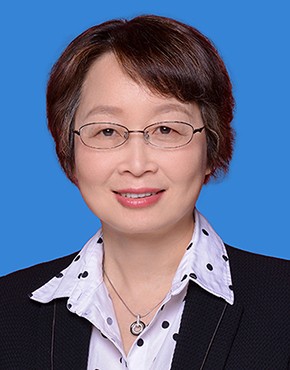 Dr. Qun-ying Lei is the Professor of Shanghai Cancer Center and Institute of Biomedical Sciences, and Deanirector of School of Basic Medical Sciences, Fudan University, Shanghai, China. She received Ph.D. degree from Fudan University and became Professor in 2009. Dr. Lei's group has been focusing on the biological function of nutrients/metabolites, especially on the cancer specific-metabolites, and their sensing pathways to elucidate their physiological and pathological significances. Her study have been published on Nature Cell Biology, Nature Metabolism, National Science Review, Cancer Cell, Cell Metabolism, Molecular Cell, J. Clinical. Investigation, Nature Communications, as well as other top journals . Total IF of these publications is 177.833. Dr. Lei has received various honors and awards including Wu Jieping - Paul Janssen Medical & Pharmaceutical Award, C.C.Tan Life Science Innovation Award, Nominee Award of Shanghai Science and Technology Elite, and etc.
Dr. Qun-ying Lei is the Professor of Shanghai Cancer Center and Institute of Biomedical Sciences, and Deanirector of School of Basic Medical Sciences, Fudan University, Shanghai, China. She received Ph.D. degree from Fudan University and became Professor in 2009. Dr. Lei's group has been focusing on the biological function of nutrients/metabolites, especially on the cancer specific-metabolites, and their sensing pathways to elucidate their physiological and pathological significances. Her study have been published on Nature Cell Biology, Nature Metabolism, National Science Review, Cancer Cell, Cell Metabolism, Molecular Cell, J. Clinical. Investigation, Nature Communications, as well as other top journals . Total IF of these publications is 177.833. Dr. Lei has received various honors and awards including Wu Jieping - Paul Janssen Medical & Pharmaceutical Award, C.C.Tan Life Science Innovation Award, Nominee Award of Shanghai Science and Technology Elite, and etc.
https://ibs.fudan.edu.cn/ibsen/05/ae/c39095a460206/page.htm
Bin Li
Research Areas: Oncology, Pathology and Pathophysiology
 Dr. Bin Li is a professor and doctoral supervisor, an outstanding talent of "Nanshan Scholar", director of Medical Research Center of the Fifth Hospital of Guangzhou Medical University, deputy director of Guangdong Key Laboratory of Biotargeted Diagnosis and Rehabilitation, and former deputy director of Key Laboratory of Tumor Molecular Biology of Ministry of Education. He is engaged in basic and applied research on tumor, mainly based on disease models and multi-omics analysis, tumor target screening and identification, post-translational modification epigenetic research and targeted intervention exploration. He has been leading the National Natural Science Foundation of China, sub-projects of National Key Research and Development Program, and provincial and municipal projects. In the past five years, he has published more than 30 SCI papers as correspondence/first author, including 15 articles with IF>10 and total IF>300, including Nature Commun., Adv Sci., Cancer Res., Clin Cancer Res., Signal Transduct Target Ther., Cancer Commun., Acta Pharm Sin B., Small Pharm Sin B., and the National Institute of Cancer Research, Acta Pharm Sin B, Small methods, Oncogene, etc. 12 Chinese patents have been granted.
Dr. Bin Li is a professor and doctoral supervisor, an outstanding talent of "Nanshan Scholar", director of Medical Research Center of the Fifth Hospital of Guangzhou Medical University, deputy director of Guangdong Key Laboratory of Biotargeted Diagnosis and Rehabilitation, and former deputy director of Key Laboratory of Tumor Molecular Biology of Ministry of Education. He is engaged in basic and applied research on tumor, mainly based on disease models and multi-omics analysis, tumor target screening and identification, post-translational modification epigenetic research and targeted intervention exploration. He has been leading the National Natural Science Foundation of China, sub-projects of National Key Research and Development Program, and provincial and municipal projects. In the past five years, he has published more than 30 SCI papers as correspondence/first author, including 15 articles with IF>10 and total IF>300, including Nature Commun., Adv Sci., Cancer Res., Clin Cancer Res., Signal Transduct Target Ther., Cancer Commun., Acta Pharm Sin B., Small Pharm Sin B., and the National Institute of Cancer Research, Acta Pharm Sin B, Small methods, Oncogene, etc. 12 Chinese patents have been granted.
https://yjs.gzhmu.edu.cn/info/1720/6246.htm
Liang Ouyang
Research Areas: Medicinal chemistry, chemical biology of drug discovery
 Dr. Liang Ouyang is a researcher at the State Key Laboratory of Biotherapeutics, West China Hospital, Sichuan University, and a recipient of the National Outstanding Young Fund (2019). He has long been engaged in applied basic research on drug design and synthesis of original targets of cellular autophagy, discovery of lead compounds and clinical translation. He has developed new methods for autophagic target identification, established small molecule libraries, and provided universal and efficient tools for autophagy-based drug screening; designed and synthesized several small molecule lead compounds around ULK1, BRD4-AMPK and other original drug targets in the autophagic death pathway and revealed their autophagy-regulated mechanisms, which laid the scientific foundation for the discovery of new drug targets and lead compounds based on autophagy. He has published more than 70 SCI papers in Chem Sci., J Med Chem., Autophagy and other journals (more than 30 first or corresponding papers), with total citations of more than 2200, and the highest single citation of 731. He has applied for 8 invention patents. He has been received the Young Award for Medical Health and Longevity of the Chinese Academy of Medical Sciences and the 22nd Chinese Pharmaceutical Society-Schwiya Young Medicinal Chemistry Award.
Dr. Liang Ouyang is a researcher at the State Key Laboratory of Biotherapeutics, West China Hospital, Sichuan University, and a recipient of the National Outstanding Young Fund (2019). He has long been engaged in applied basic research on drug design and synthesis of original targets of cellular autophagy, discovery of lead compounds and clinical translation. He has developed new methods for autophagic target identification, established small molecule libraries, and provided universal and efficient tools for autophagy-based drug screening; designed and synthesized several small molecule lead compounds around ULK1, BRD4-AMPK and other original drug targets in the autophagic death pathway and revealed their autophagy-regulated mechanisms, which laid the scientific foundation for the discovery of new drug targets and lead compounds based on autophagy. He has published more than 70 SCI papers in Chem Sci., J Med Chem., Autophagy and other journals (more than 30 first or corresponding papers), with total citations of more than 2200, and the highest single citation of 731. He has applied for 8 invention patents. He has been received the Young Award for Medical Health and Longevity of the Chinese Academy of Medical Sciences and the 22nd Chinese Pharmaceutical Society-Schwiya Young Medicinal Chemistry Award.
https://jcfy.scu.edu.cn/info/1125/4092.htm
Min Wu
Research Areas: autophagy, inflammasome, non-coding RNAs, drug and vaccines.
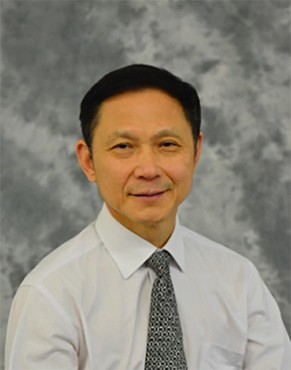 Dr. Min Wu is professor of Wenzhou Institute of University of Chinese Academy of Sciences, emeritus professor of University of North Dakota. He is the first to discover Cas13a anti-CRISPR molecules, and made some original contributions to host-pathogen interaction mechanisms, and published over 200 papers (Nat Microbiol., Nat Commun., Nature, Mol Cell.). He serves for a dozen of journals, including chief editor, associate editor and editorial board members. He was supported by the US National Institutes of Health, DoD, AHA, and was reviewers of US DoD and NIH grants as well as many other countries science funding agencies. He was the chairman of international academic conferences and meeting sessions. He is well cited and a top journal reviewer (Nat Rev Mol Cell Biol., Nat Microbiol.). He trained many young scientists and they have also won many academic awards including AAI career postdoctoral awards.
Dr. Min Wu is professor of Wenzhou Institute of University of Chinese Academy of Sciences, emeritus professor of University of North Dakota. He is the first to discover Cas13a anti-CRISPR molecules, and made some original contributions to host-pathogen interaction mechanisms, and published over 200 papers (Nat Microbiol., Nat Commun., Nature, Mol Cell.). He serves for a dozen of journals, including chief editor, associate editor and editorial board members. He was supported by the US National Institutes of Health, DoD, AHA, and was reviewers of US DoD and NIH grants as well as many other countries science funding agencies. He was the chairman of international academic conferences and meeting sessions. He is well cited and a top journal reviewer (Nat Rev Mol Cell Biol., Nat Microbiol.). He trained many young scientists and they have also won many academic awards including AAI career postdoctoral awards.
https://www.researchgate.net/profile/Min-Wu-47
Year 2023
Guojun Bu
Research Areas: aging; neurodegenerative and age-related disorders; neuroscience; molecular and cellular neuroscience; protein trafficking.
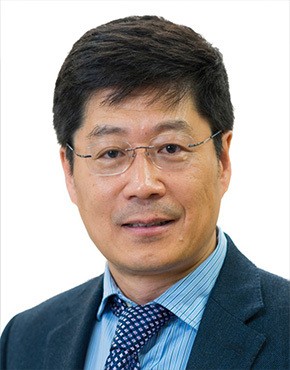 Dr. Guojun Bu is the Lo Ka Chung Charitable Foundation Professor of Science and a Chair Professor in the Division of Life Science at the Hong Kong University of Science and Technology. He is a world-renowned neuroscientist and former Chair, Department of Neuroscience at Mayo Clinic. Dr. Bu is a leader in the field of apoE and apoE receptors, which play critical roles in the pathogenesis of Alzheimer’s disease (AD). His primary interest is to understand why APOE4 is a strong risk factor for AD and how this pathway can be targeted for therapy. He has published over 350 articles with over 40000 citations and an H-Index of 115 (Google Scholar). He has been named as a “Highly Cited Researcher” by the Web of Science for the past several years. Dr. Bu has received numerous honors and awards including the Zenith Fellows Award from the Alzheimer’s Association, the Established Investigator Award from the American Heart Association, a MERIT award from NIH, the Investigator of the Year award from the Mayo Clinic, and the MetLife Foundation Award for Medical Research in Alzheimer’s disease. He is an elected Fellow of the American Association for the Advancement of Science (AAAS), Founding Editor and Editor-in-Chief of Mol Neurodegener, an Associate Editor for Sci Adv, and is on the editorial board for Neuron.
Dr. Guojun Bu is the Lo Ka Chung Charitable Foundation Professor of Science and a Chair Professor in the Division of Life Science at the Hong Kong University of Science and Technology. He is a world-renowned neuroscientist and former Chair, Department of Neuroscience at Mayo Clinic. Dr. Bu is a leader in the field of apoE and apoE receptors, which play critical roles in the pathogenesis of Alzheimer’s disease (AD). His primary interest is to understand why APOE4 is a strong risk factor for AD and how this pathway can be targeted for therapy. He has published over 350 articles with over 40000 citations and an H-Index of 115 (Google Scholar). He has been named as a “Highly Cited Researcher” by the Web of Science for the past several years. Dr. Bu has received numerous honors and awards including the Zenith Fellows Award from the Alzheimer’s Association, the Established Investigator Award from the American Heart Association, a MERIT award from NIH, the Investigator of the Year award from the Mayo Clinic, and the MetLife Foundation Award for Medical Research in Alzheimer’s disease. He is an elected Fellow of the American Association for the Advancement of Science (AAAS), Founding Editor and Editor-in-Chief of Mol Neurodegener, an Associate Editor for Sci Adv, and is on the editorial board for Neuron.
https://facultyprofiles.hkust.edu.hk/profiles.php?profile=guojun-bu-gbu#researchinterest
Junhong Han
Research Areas: regulation of DNA replication; cancer epigenetics; cancer metastasis.
 Dr. Junhong Han is the professor and doctoral supervisor in Sichuan University. He received his Ph.D. from the Tokyo Institute of Technology in 2005, and then moved on to Mayo Clinic for postdoctoral training from 2006 to 2008. Since 2009, he has served as Senior Research Fellow, Research Associate and Assistant Professor. His research interests focus on regulation of DNA replication, cancer epigenetics and cancer metastasis. He has published more than 60 papers in Science, Cell, Nature, Gene Dev, Sci Adv, J Biol Chem, J Clin Invest, Mol Cell, Nat Struct Mol Biol, PLOS Genet and others, with more than 2700 citations. He has received the Japanese Government Fellowship, the American Heart Association Fellowship, the Edward Kendall Fellowship, and the Edward Kendall Award for Meritorious Research. As the project leader, he has undertaken several key projects of the National Natural Science Foundation, National R&D Program and Innovation Group Project. He also serves as the council member of the Chromatin Biology Branch of the Chinese Society of Cell Biology, the Epigenetics Professional Committee of the Chinese Society of Genetics and Sichuan Cell Biology Society and Committee of Molecular Cell Biology.
Dr. Junhong Han is the professor and doctoral supervisor in Sichuan University. He received his Ph.D. from the Tokyo Institute of Technology in 2005, and then moved on to Mayo Clinic for postdoctoral training from 2006 to 2008. Since 2009, he has served as Senior Research Fellow, Research Associate and Assistant Professor. His research interests focus on regulation of DNA replication, cancer epigenetics and cancer metastasis. He has published more than 60 papers in Science, Cell, Nature, Gene Dev, Sci Adv, J Biol Chem, J Clin Invest, Mol Cell, Nat Struct Mol Biol, PLOS Genet and others, with more than 2700 citations. He has received the Japanese Government Fellowship, the American Heart Association Fellowship, the Edward Kendall Fellowship, and the Edward Kendall Award for Meritorious Research. As the project leader, he has undertaken several key projects of the National Natural Science Foundation, National R&D Program and Innovation Group Project. He also serves as the council member of the Chromatin Biology Branch of the Chinese Society of Cell Biology, the Epigenetics Professional Committee of the Chinese Society of Genetics and Sichuan Cell Biology Society and Committee of Molecular Cell Biology.
https://orcid.org/0000-0002-3371-8698
Canhua Huang
Research Areas: redox regulation in tumorigenesis; the mechanism of virus-induced tumorigenesis.
 Dr. Canhua Huang is a Professor of The State Key Lab of Biotherapy, West China Hospital, Sichuan University. He received his Ph.D. from the Chinese Academy of Sciences in 2000. After accomplishing his postdoctoral research at National University of Singapore, he was hired as a Research Scientist of Oncology Research Institute, National University of Singapore in 2003. He returned to China in 2005 and was appointed as a Professor of the State Key Lab of Biotherapy, West China Hospital, Sichuan University. He has published more than 120 research articles and invited reviews in world leading journals such as Nat Microbiol, Nat Commun, Cell Rep, Gastroenterology, J Hepatol, Hepatology, EMBO Mol Med, Cancer Res, Autophagy, Cell Death Differ, Oncogene, Mol Cell Proteomics, Trends Biochem Sci, Semin Cancer Biol, Drug Resist Updat, J Hematol Oncol, Mass Spectrom Rev, Antioxid Redox Signal, Med Res Rev, and Biochim Biophys Acta Rev Cancer, with an H-index of 63 (google scholar). He was selected by Elsevier as the Highly Cited Chinese Researcher in 2020, 2021 and 2022.
Dr. Canhua Huang is a Professor of The State Key Lab of Biotherapy, West China Hospital, Sichuan University. He received his Ph.D. from the Chinese Academy of Sciences in 2000. After accomplishing his postdoctoral research at National University of Singapore, he was hired as a Research Scientist of Oncology Research Institute, National University of Singapore in 2003. He returned to China in 2005 and was appointed as a Professor of the State Key Lab of Biotherapy, West China Hospital, Sichuan University. He has published more than 120 research articles and invited reviews in world leading journals such as Nat Microbiol, Nat Commun, Cell Rep, Gastroenterology, J Hepatol, Hepatology, EMBO Mol Med, Cancer Res, Autophagy, Cell Death Differ, Oncogene, Mol Cell Proteomics, Trends Biochem Sci, Semin Cancer Biol, Drug Resist Updat, J Hematol Oncol, Mass Spectrom Rev, Antioxid Redox Signal, Med Res Rev, and Biochim Biophys Acta Rev Cancer, with an H-index of 63 (google scholar). He was selected by Elsevier as the Highly Cited Chinese Researcher in 2020, 2021 and 2022.
Tiebang Kang
Research Areas: the regulation and intervention strategies of both cancer cells and their extracellular vesicles for drug resistance and metastasis.
 Dr. Tiebang Kang is a Deputy Chair, Professor and Principal Investigator of State Key Laboratory of Oncology in South China, Sun Yat-sen University Cancer Center. He received his Ph.D. in Biochemistry from Bielefeld University, Germany in 2003. He has been engaged in cell biology and oncology research in the United States and Germany from 1998 to 2008 and joined Sun Yat-sen University in 2008. Dr. Kang’s laboratory majorly engages in the intervention strategies via deciphering the regulation of both cancer cells and their extracellular vesicles. The main theme in his lab is to identify new targets to overcome the drug resistance for cancer treatments and/or to improve the outcomes of cancer patients with metastases, and to illustrate how these targets execute their intracellular functions and/or their secretion into extracellular vesicles to modulate the tumor microenvironment. As the corresponding author, he has published more than 50 papers in prestigious biomedical journals including Nat Cell Biol, Nat Cancer, Cell Res, Signal Transduct Target Ther, Sci Adv, J Clin Invest, Adv Sci, Nat Commun, Cancer Res, etc. He is also the chairman of Tumor Cell Biology Branch of Chinese Society of Cell Biology.
Dr. Tiebang Kang is a Deputy Chair, Professor and Principal Investigator of State Key Laboratory of Oncology in South China, Sun Yat-sen University Cancer Center. He received his Ph.D. in Biochemistry from Bielefeld University, Germany in 2003. He has been engaged in cell biology and oncology research in the United States and Germany from 1998 to 2008 and joined Sun Yat-sen University in 2008. Dr. Kang’s laboratory majorly engages in the intervention strategies via deciphering the regulation of both cancer cells and their extracellular vesicles. The main theme in his lab is to identify new targets to overcome the drug resistance for cancer treatments and/or to improve the outcomes of cancer patients with metastases, and to illustrate how these targets execute their intracellular functions and/or their secretion into extracellular vesicles to modulate the tumor microenvironment. As the corresponding author, he has published more than 50 papers in prestigious biomedical journals including Nat Cell Biol, Nat Cancer, Cell Res, Signal Transduct Target Ther, Sci Adv, J Clin Invest, Adv Sci, Nat Commun, Cancer Res, etc. He is also the chairman of Tumor Cell Biology Branch of Chinese Society of Cell Biology.
https://orcid.org/0000-0001-8805-4174
Yibin Kang
Research Areas: molecular mechanisms of breast cancer progression, metastasis and treatment resistance; cell fate regulation and epithelial plasticity in mammary stem cells.
 Yibin Kang is a Warner-Lambert/Parke-Davis Professor of Molecular Biology at Princeton University, the Associate Director of Rutgers Cancer Institute of New Jersey, and a founding member of the Ludwig Institute for Cancer Research Princeton Branch. He graduated from Fudan University in 1995. After completing his Ph.D. study at Duke in 2000 and postdoctoral training at Memorial Sloan-Kettering Cancer Center, Dr. Kang joined the faculty of Princeton University as an Assistant Professor in 2004. He was promoted to Associate Professor with tenure in 2010 and to Endowed Chair Full Professor in 2012. Dr. Kang has served as the President of the Metastasis Research Society (2016-2018), Chair of the American Association for Cancer Research (AACR) Tumor Microenvironment Working Group (2018-2019) and President of Chinese Biological Investigator Society (2018-2022).
Yibin Kang is a Warner-Lambert/Parke-Davis Professor of Molecular Biology at Princeton University, the Associate Director of Rutgers Cancer Institute of New Jersey, and a founding member of the Ludwig Institute for Cancer Research Princeton Branch. He graduated from Fudan University in 1995. After completing his Ph.D. study at Duke in 2000 and postdoctoral training at Memorial Sloan-Kettering Cancer Center, Dr. Kang joined the faculty of Princeton University as an Assistant Professor in 2004. He was promoted to Associate Professor with tenure in 2010 and to Endowed Chair Full Professor in 2012. Dr. Kang has served as the President of the Metastasis Research Society (2016-2018), Chair of the American Association for Cancer Research (AACR) Tumor Microenvironment Working Group (2018-2019) and President of Chinese Biological Investigator Society (2018-2022).
Dr. Kang’s research focuses on the molecular mechanisms of breast cancer metastasis. He has published over 200 original articles in leading journals including Science, Cancer Cell, and Nature Medicine. Dr. Kang's outstanding achievements have been recognized by many prestigious awards, including the 2011 Vicek Prize for Creative Promise in Biomedical Sciences (2011), and the AACR Award for Outstanding Achievements in Cancer Research (2012), and the AACR Outstanding Investigator Award in Breast Cancer Research (2014).
https://scholar.princeton.edu/kanglab
Xiangrong Song
Research Areas: targeted delivery of bioactive and innovative small molecules such as mRNA and peptide/protein drugs against human diseases such as cancer and cardiovascular diseases.
 Dr. Xiangrong Song is a PI and doctoral supervisor of State Key Laboratory of Biotherapy, West China Hospital, Sichuan University. She received her PhD in pharmaceutics from Sichuan University in 2008 and continued her postdoctoral training in the State Key Laboratory of Biotherapy focusing on biological research. She worked as a visiting professor of immunology at Dana-Farber Cancer Institute, Harvard Medical School from 2016 to 2017, and of nanomedicine at Brigham and Women's Hospital, Harvard Medical School from 2017 to 2018. She has published more than 100 research papers in prestigious SCI journals such as Nature, Sig Transduct Target Ther, Sci Adv, Nat Commun, Adv Funct Mater, Adv Drug Deliv Rev, Acta Pharm Sin B, and J Control Release. She is also a co-founder of WestGene Biopharma Co., Ltd and an inventor of more than 70 issued/pending patents worldwide.
Dr. Xiangrong Song is a PI and doctoral supervisor of State Key Laboratory of Biotherapy, West China Hospital, Sichuan University. She received her PhD in pharmaceutics from Sichuan University in 2008 and continued her postdoctoral training in the State Key Laboratory of Biotherapy focusing on biological research. She worked as a visiting professor of immunology at Dana-Farber Cancer Institute, Harvard Medical School from 2016 to 2017, and of nanomedicine at Brigham and Women's Hospital, Harvard Medical School from 2017 to 2018. She has published more than 100 research papers in prestigious SCI journals such as Nature, Sig Transduct Target Ther, Sci Adv, Nat Commun, Adv Funct Mater, Adv Drug Deliv Rev, Acta Pharm Sin B, and J Control Release. She is also a co-founder of WestGene Biopharma Co., Ltd and an inventor of more than 70 issued/pending patents worldwide.
https://sklb.scu.edu.cn/detail.html?type=postgraduateDetail&id=427
Francesco Di Virgilio
Research Areas: Immunology; cancer; purinergic signalling.
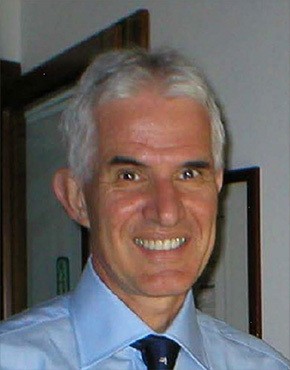 Dr. Francesco Di Virgilio is a professor of Department of Medical Sciences, University of Ferrara. He received his M.D. from University of Padova in 1979. He has been an Honorary Research Assistant at University College London (1982-1984), Research Assistant at University of Padova (1984-1985), Visiting Fellow Scientist at Columbia University (1985-1986), Associate Professor of General Pathology at University of Padova (1986-1992), and Professor of Clinical Pathology at University of Ferrara from 1992. He is the Member of the Academia Europaea, the Committee for Receptor Nomenclature, International Union of Pharmacology (IUPHAR), the Faculty of 1000 (Cell Biology Section), the European Academy of Tumor Immunology and the Sigma Xi Scientific Research Honour Society (USA). He has over 320 PubMed publications in world leading journals including Science, Lancet, Immunity, Nat Rev Cancer, Blood, EMBO J, etc., with totally over 35000 citations and an H-index of 105 (Scopus) and 106 (WOS) respectively. He is the co-inventor of five international patents. He is also the Editor-in-Chief of Current Opinion in Pharmacology from 2021.
Dr. Francesco Di Virgilio is a professor of Department of Medical Sciences, University of Ferrara. He received his M.D. from University of Padova in 1979. He has been an Honorary Research Assistant at University College London (1982-1984), Research Assistant at University of Padova (1984-1985), Visiting Fellow Scientist at Columbia University (1985-1986), Associate Professor of General Pathology at University of Padova (1986-1992), and Professor of Clinical Pathology at University of Ferrara from 1992. He is the Member of the Academia Europaea, the Committee for Receptor Nomenclature, International Union of Pharmacology (IUPHAR), the Faculty of 1000 (Cell Biology Section), the European Academy of Tumor Immunology and the Sigma Xi Scientific Research Honour Society (USA). He has over 320 PubMed publications in world leading journals including Science, Lancet, Immunity, Nat Rev Cancer, Blood, EMBO J, etc., with totally over 35000 citations and an H-index of 105 (Scopus) and 106 (WOS) respectively. He is the co-inventor of five international patents. He is also the Editor-in-Chief of Current Opinion in Pharmacology from 2021.
https://docente.unife.it/francesco.divirgilio
Dao Wen Wang
Research Areas: diagnosis and treatment of cardiovascular system diseases; genetic diagnosis and genotyping for individualized medicine.
 Dr. Dao Wen Wang is a professor and archiater of Tongji Hospital, Tongji Medical College, Huazhong University of Science & Technology. He is the IEAS (International Eurasian Academy of Sciences) Academician and Honorary Director of Department of Internal Medicine in Tongji Hospital. He has been engaged in clinical and basic research on cardiovascular diseases for a long time, promoting the application of evidence-based medicine in clinical practice, and establishing a standardized disease treatment system, especially in the diagnosis and treatment of fulminant myocarditis, hypertension and personalized gene therapy. He has published over 270 research articles in Circulation, Circ Res, J Am Coll Cardiol, Nat Commun, Adv Sci, EBioMedicine, and Cardiovasc Res, with more than 8500 citations and an H-Index of 58. He has been authorized 31 national invention patents (including 1 US patent and 1 Hong Kong patent) and published 4 monographs as Editor-in-Chief.
Dr. Dao Wen Wang is a professor and archiater of Tongji Hospital, Tongji Medical College, Huazhong University of Science & Technology. He is the IEAS (International Eurasian Academy of Sciences) Academician and Honorary Director of Department of Internal Medicine in Tongji Hospital. He has been engaged in clinical and basic research on cardiovascular diseases for a long time, promoting the application of evidence-based medicine in clinical practice, and establishing a standardized disease treatment system, especially in the diagnosis and treatment of fulminant myocarditis, hypertension and personalized gene therapy. He has published over 270 research articles in Circulation, Circ Res, J Am Coll Cardiol, Nat Commun, Adv Sci, EBioMedicine, and Cardiovasc Res, with more than 8500 citations and an H-Index of 58. He has been authorized 31 national invention patents (including 1 US patent and 1 Hong Kong patent) and published 4 monographs as Editor-in-Chief.
https://www.tjh.com.cn/MedicalService/outpatient_doctor.html?codenum=100619
Zhixiong Jim Xiao
Research Areas: tumor growth, metastasis, metabolism, drug resistance and immunity; senescence and aging; translational medicine.
 Dr. Zhixiong Jim Xiao is the professor and Principal Investigator of the College of Life Sciences, Sichuan University. He was selected into the CUSBEA program and received his Ph.D. in Cellular and Molecular Biology from the University of Massachusetts at Amherst in the United States. He did postdoctoral training at Dana-Farber Cancer Institute, Harvard Medical School, and was appointed to the Department of Biochemistry and the Department of Medicine at Boston University School of Medicine, where he served as assistant professor, associate professor, and professor from then. As the corresponding author, he has published more than 100 research articles in first-class journals such as Nature, Proc Natl Acad Sci U S A, Mol Cell, Cancer Cell, Nature Commun, Oncogene, PLOS Biology, Aging Cell and J Biol Chem.
Dr. Zhixiong Jim Xiao is the professor and Principal Investigator of the College of Life Sciences, Sichuan University. He was selected into the CUSBEA program and received his Ph.D. in Cellular and Molecular Biology from the University of Massachusetts at Amherst in the United States. He did postdoctoral training at Dana-Farber Cancer Institute, Harvard Medical School, and was appointed to the Department of Biochemistry and the Department of Medicine at Boston University School of Medicine, where he served as assistant professor, associate professor, and professor from then. As the corresponding author, he has published more than 100 research articles in first-class journals such as Nature, Proc Natl Acad Sci U S A, Mol Cell, Cancer Cell, Nature Commun, Oncogene, PLOS Biology, Aging Cell and J Biol Chem.
http://www.labshare.cn/cgma/faculties/xiao.html
Wei-Guo Zhu
Research Areas: cancer epigenetic regulation, DNA damage response, histone modification, and autophagy.
 Dr. Wei-Guo Zhu is a Chair Professor and doctoral supervisor of Shenzhen University School of Medicine and Director of Carlson International Cancer Center, Shenzhen University. He has been a professor of Peking University and a researcher of Peking University-Tsinghua University Life Joint Center. He has published more than 180 research papers in international high-impact journals including Nature, Nat Cell Biol, Nat Struct Mol Biol, Mol Cell, Sci Adv, and Proc Natl Acad Sci U S A. His major contributions include "proposing the mode of action of tumor epigenetic therapy, elucidating the cytoplasmic functions of some transcription factors, and demonstrating some key factors influencing the DNA damage response and repair of tumor cells by chemotherapy and radiotherapy”. He also serves as the EiC of Genome Instability & Disease and Associate Editor of Cancer Science.
Dr. Wei-Guo Zhu is a Chair Professor and doctoral supervisor of Shenzhen University School of Medicine and Director of Carlson International Cancer Center, Shenzhen University. He has been a professor of Peking University and a researcher of Peking University-Tsinghua University Life Joint Center. He has published more than 180 research papers in international high-impact journals including Nature, Nat Cell Biol, Nat Struct Mol Biol, Mol Cell, Sci Adv, and Proc Natl Acad Sci U S A. His major contributions include "proposing the mode of action of tumor epigenetic therapy, elucidating the cytoplasmic functions of some transcription factors, and demonstrating some key factors influencing the DNA damage response and repair of tumor cells by chemotherapy and radiotherapy”. He also serves as the EiC of Genome Instability & Disease and Associate Editor of Cancer Science.
